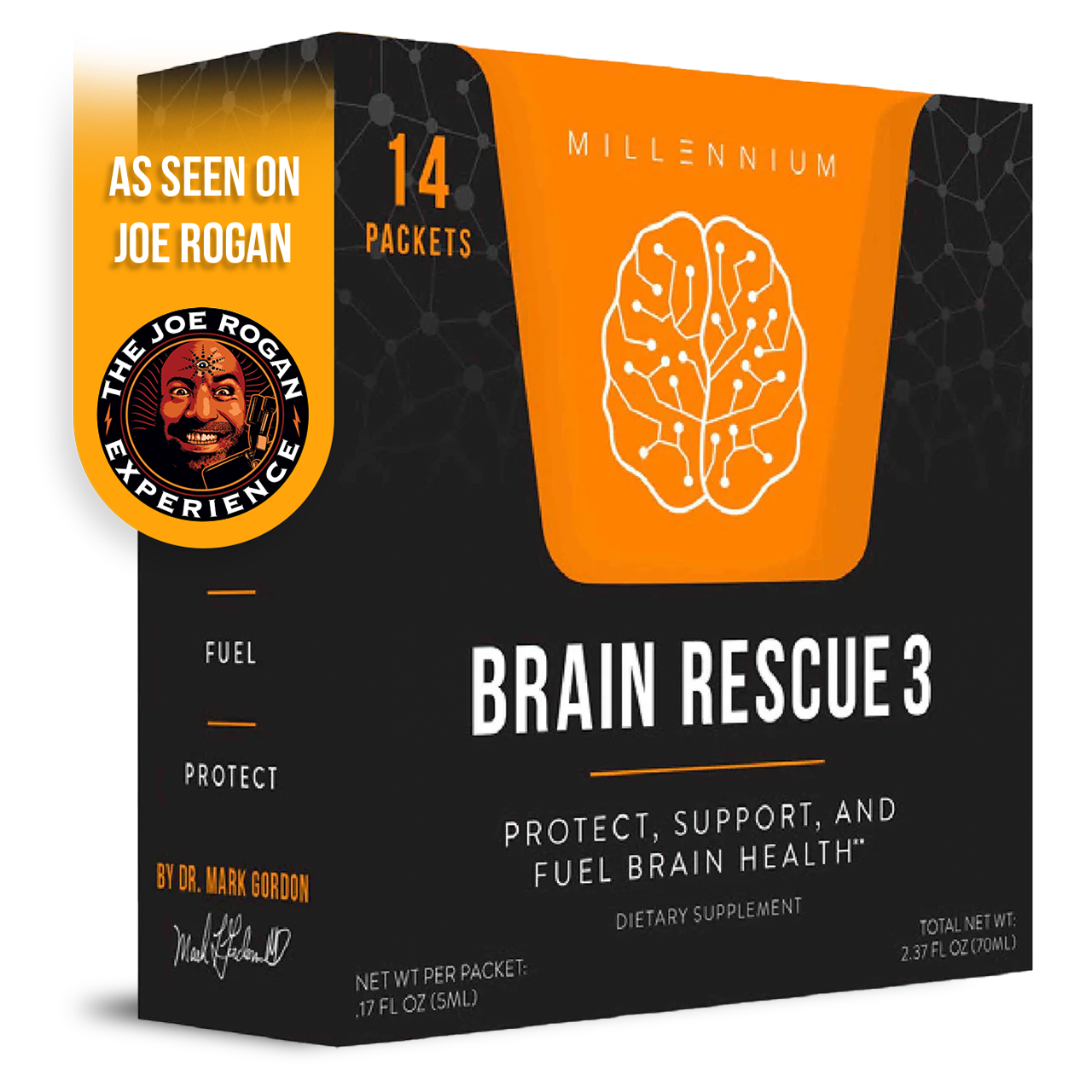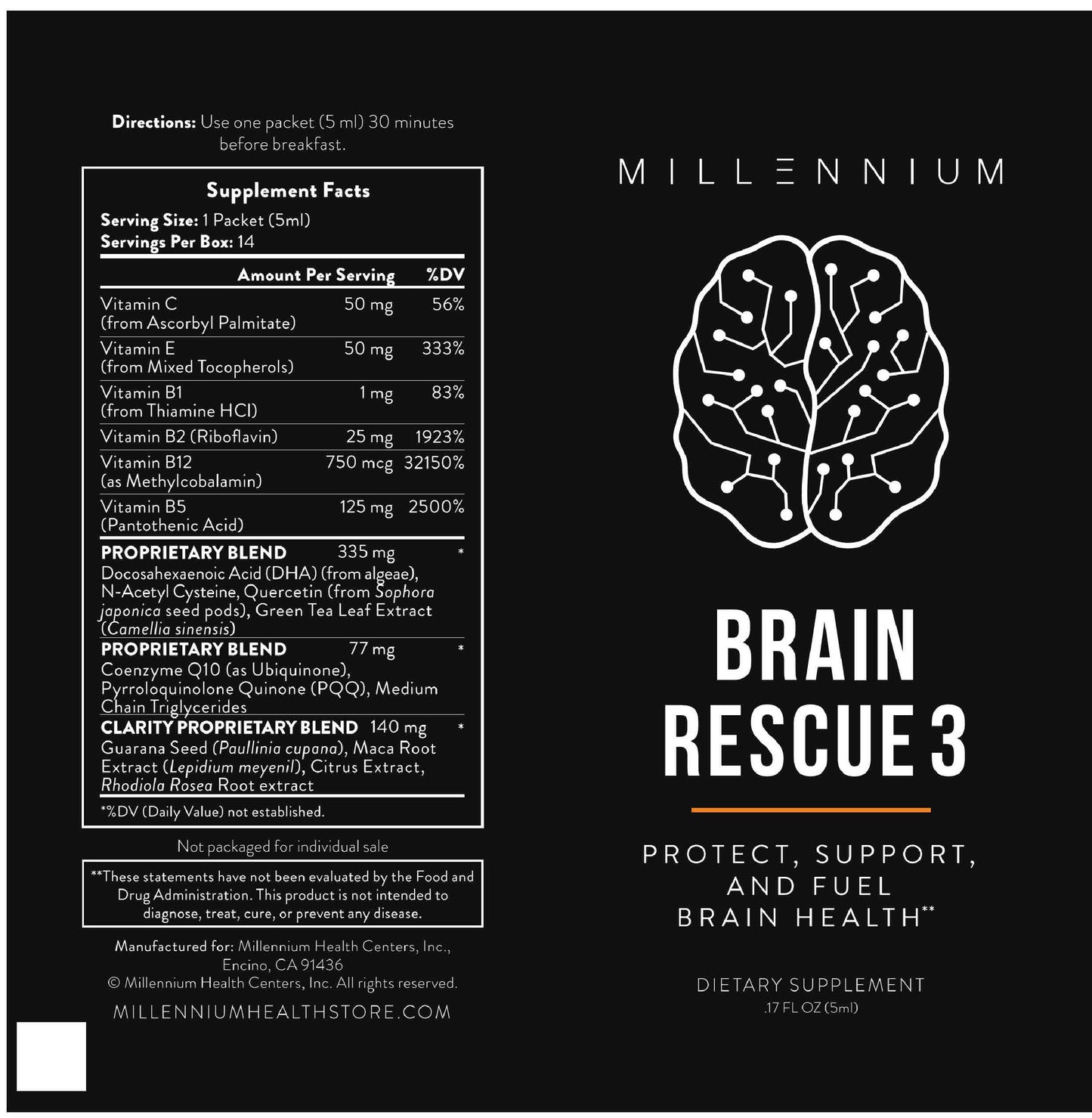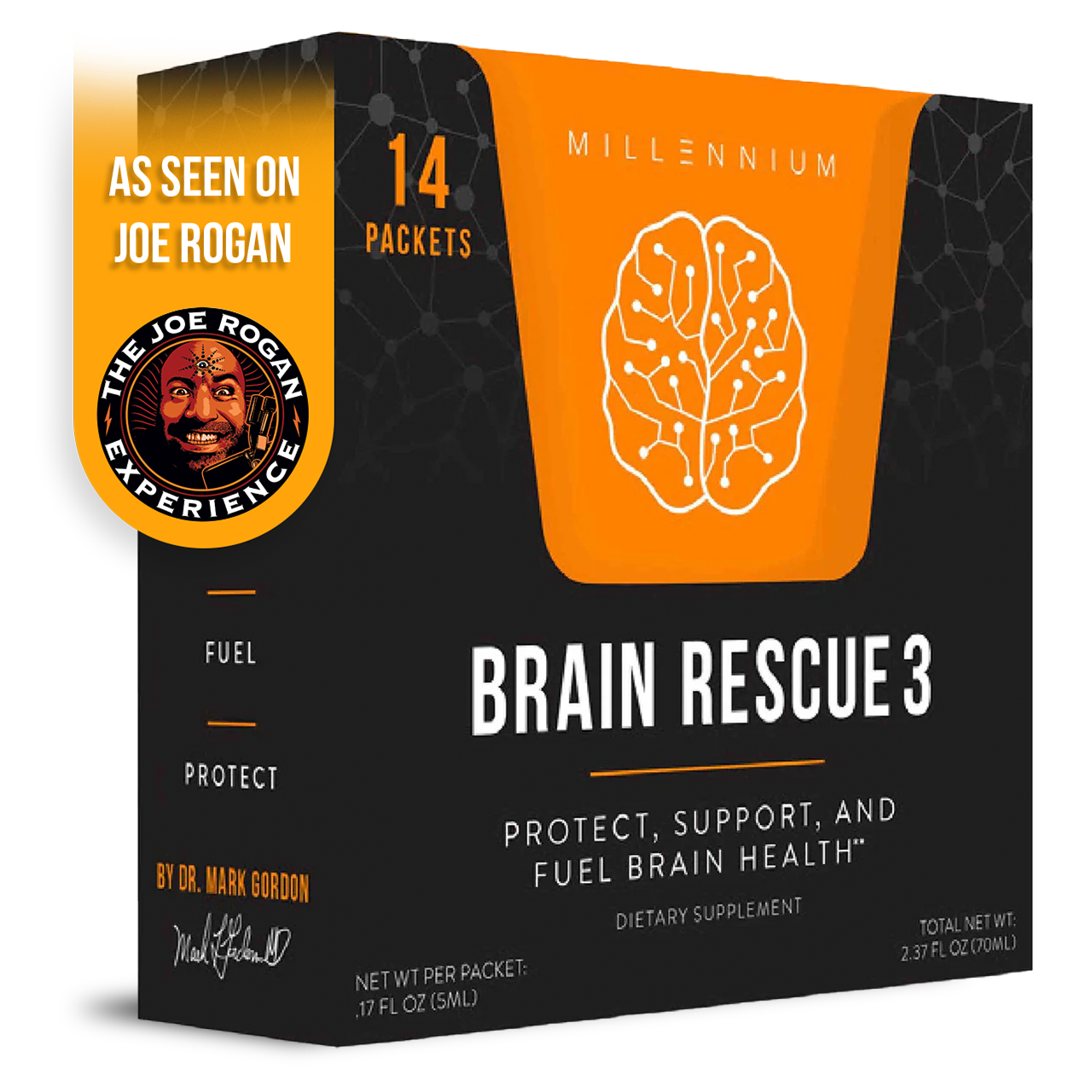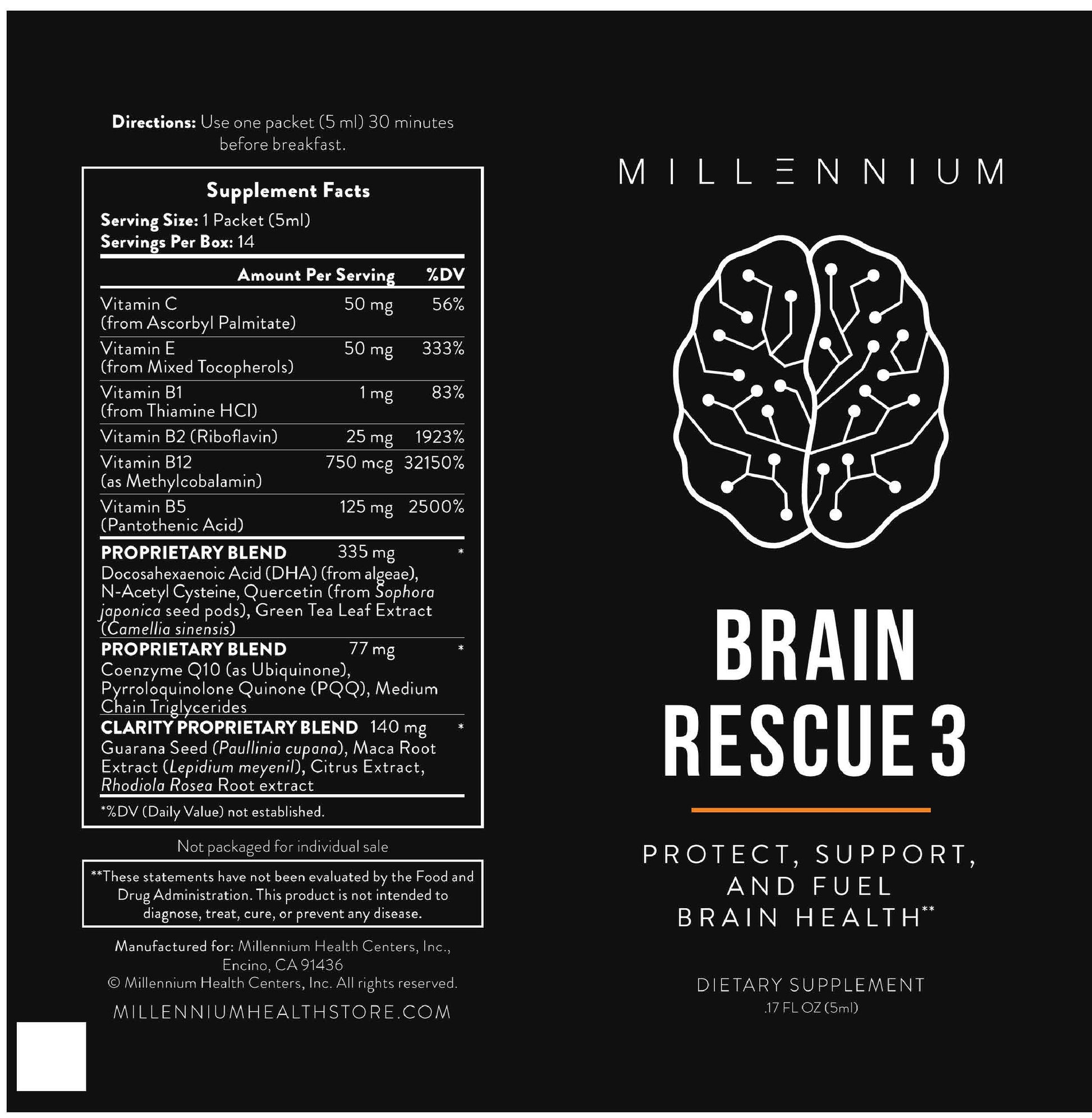

Brain Rescue 3 (limited 2 per order) Supports:
Better Memory and Concentration
Increased Brain Function and Healthy Brain Cells
Energy Boost with Increased Mental Clarity
OUR COMMITMENT TO QUALITY
OUR METHOD
Millennium Health products combine natural, clinically-proven ingredients with liposomal delivery system. In liposomal delivery, liposomes (small artificial vessels) are used to encapsulate and transport the active ingredients to locations in the body where they are most efficiently absorbed, thus increasing the “bioavailability” in the body. Liposomal vitamins in Millennium Health products are packaged like a bodily cell so they penetrate the digestive barrier and deliver more than 90% of the nutrient directly to the bloodstream within minutes.
When taking any of our products, you may feel the effects of mental clarity, energy, and focus within just 20-30 minutes!



